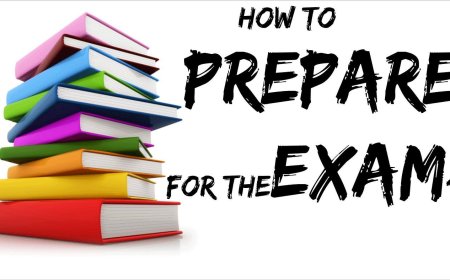Promoting Civic Engagement and Leadership in USA Schools.
U.S. schools promote civic engagement and leadership by helping students develop the knowledge, skills, and attitudes needed to take an active role in their communities. This is done through curriculum-based civic education, real-life engagement opportunities, and partnerships with community organizations. Schools are essential in shaping students' sense of responsibility and encouraging them to contribute meaningfully to the public good.

Promoting Civic Engagement and Leadership in Schools using a new curriculum is an educational initiative designed to enhance students' understanding and participation in democratic processes. This approach is grounded in the historical context of
civic education in the United States, which has evolved to address concerns about declining civic knowledge and engagement among young people. As democratic societies face challenges such as political polarization and reduced social capital, the importance of equipping students with the skills and knowledge necessary for active citizenship has gained renewed attention from educators and policymakers alike.[1][2].
The new curriculum framework emphasizes the integration of civic education into existing K-12 programs through innovative teaching strategies and active learning methodologies. By focusing on experiential learning and community involvement, the curriculum seeks to foster a generation of informed and engaged citizens who
Prominent controversies surrounding this initiative include debates about the effec- tiveness of mandated civic assessments, the challenge of ensuring equitable access to civic education, and the need to adapt curricula to reflect diverse perspectives and experiences. While some educators advocate for standardized curricula to promote consistency across schools, others emphasize the importance of local adaptation to address unique community contexts. The balance between national guidelines and local relevance remains a critical issue in discussions of civic education reform.[5][6].
Overall, promoting civic engagement and leadership in schools through a new cur- riculum aims not only to enhance academic achievement but also to cultivate a sense of responsibility and social consciousness among students. By preparing young individuals to navigate and influence democratic processes, this initiative aspires to strengthen the fabric of American democracy and empower future generations to participate meaningfully in civic life.[7][8].
Historical Context
Civic education has evolved significantly throughout American history, rooted in the belief that a well-informed citizenry is essential for a functioning democracy. The origins of civic education can be traced back to the foundational principles of public schooling, which aimed to provide all children with a standard quality education and promote shared experiences among diverse populations[1]. This emphasis on education has been a pivotal element in fostering civic engagement, as it empowers young individuals to participate actively in their communities and governance.
In the late 20th century, scholars began to express concerns over declining civic engagement, particularly among youth. Robert D. Putnam's seminal work, "Bowling Alone," highlighted the deterioration of social capital and community involvement in the United States, suggesting a link between the lack of civic education and the decline in participatory culture[2]. This prompted a renewed focus on integrating civic education into the K-12 curriculum, as educators and policymakers recognized the necessity of preparing students for active citizenship.
The shift from a broad overview of civics to a more in-depth exploration of civic the- mes has been supported by various educational initiatives. Reports have suggested that integrating deeper, thematic questions into civics and history education can en- hance students' understanding of their roles within society. For instance, discussions surrounding the experiences of marginalized groups under colonial governance have provided richer contexts for students to engage with civic issues[3][4]. Such themes have been crafted as part of an interdisciplinary approach to civics, which encourages critical thinking and civic problem-solving skills.
Moreover, institutions of higher education have also begun to emphasize civic en- gagement through various programs and curricula aimed at fostering a sense of
In recent years, several states have enacted policies to reinforce civic education, including mandates requiring students to pass citizenship tests for graduation. These measures, while controversial, reflect a growing recognition of the importance of civic knowledge in mitigating the challenges of political polarization and fostering informed citizenship among young Americans[6]. The emphasis on civic education as a tool for democratic renewal continues to resonate within educational discussions, highlighting its historical significance and relevance in contemporary society.
New Curriculum Framework
Overview of the Leadership Curriculum
The new leadership curriculum is structured over eight sessions spread across two semesters, developed collaboratively to seamlessly integrate with the overall course content. Initially designed with a broad scope of topics, the curriculum was refined as the instructors gained insights into student needs and previous class experiences[7]. This approach ensures that the curriculum remains relevant and responsive to the educational context.
National Suggested Curriculum
In an effort to standardize civic education, the proposed national suggested curricu- lum can be modeled after successful state curricula, allowing states to share effective resources. This initiative aims to establish a consistent baseline of civic knowledge and skills nationwide. However, it is crucial that state and local educational bodies adapt these materials to fit their specific contexts, thereby enhancing local relevance while still benefiting from a standardized framework[6]. Although participation in the national curriculum is voluntary, it serves as a catalyst for promoting civic education across schools.
Importance of Civic Engagement
Civic engagement, defined by the American Psychological Association, encom- passes actions taken individually or collectively to address public issues. Historical events, such as the protests against the Vietnam War, exemplify civic engagement in action. Engaging young citizens in civic activities not only enhances their under- standing of governmental processes but also fosters community involvement and advocacy skills, preparing them for active participation in democracy[6]. The alarming trends showing a decline in civic knowledge among Americans highlight the urgency for comprehensive civic education[6].
Educational Initiatives and Policies
To enhance civic education, various state-level policies have been introduced, such as the requirement for high school students to pass a citizenship test before grad- uation. As of 2023, 17 states have implemented similar mandates, sparking debate about the efficacy and implications of such policies[8]. Furthermore, programs like the Service, Leadership & Community Transformation course provide students with hands-on experiences in community engagement, reinforcing their understanding of civic responsibilities while addressing real-world issues[9].
Outcomes of Civic Education
The emphasis on civic education aims to counteract the current challenges facing American democracy, including low governmental trust and political polarization. By equipping students with the knowledge and skills needed for active citizenship, the curriculum aspires to foster a generation of informed and engaged citizens who
Theoretical Frameworks
Informed Social Engagement Model
The Informed Social Engagement Model (ISEM) offers insights into the factors that enhance civic participation among adolescents. An empirical study demonstrated that ISEM outperformed the traditional Social Capital Model in explaining civic knowledge and engagement in countries such as Chile, Colombia, and Mexico[11]. This model emphasizes the importance of informed engagement, where adolescents are encouraged to participate based on an understanding of civic processes and opportunities, thereby increasing their likelihood of involvement in both legal and political activities[11].
Collective Leadership Paradigm
The collective leadership paradigm provides a foundational perspective for under- standing leadership as a collective phenomenon rather than as the actions of a single individual. This paradigm, articulated by Ospina and Foldy (2016), shifts the focus from traditional notions of leadership to a broader understanding of leadership as an activity that involves all members of a group[7]. This approach emphasizes collaboration and shared responsibility, fostering an environment where students can learn and practice civic engagement through their interactions with community leaders and elected officials.
Civic Knowledge and Participation
Civic knowledge is critical for effective civic engagement. According to research, understanding the mechanisms of civic society plays a crucial role in motivating individuals to participate actively in their communities[12]. A study utilizing a robust 87-item test highlights that civic knowledge can significantly influence levels of civic participation among students[12]. Furthermore, variables such as past engagement and recruitment networks—social capital that facilitates involvement—are vital to fostering a culture of participation[12].
Community Capitals Framework
The concept of community capitals is also integral to the promotion of civic engage- ment in schools. Community capitals, which include human, social, financial, cultural, and built assets, contribute to creating thriving communities[13]. Educational initia- tives that recognize and leverage these capitals can significantly enhance students' ability to mobilize public engagement and influence resource distribution, thereby reinforcing their civic agency and leadership skills[13].
By integrating these theoretical frameworks into school curricula, educators can effectively promote civic engagement and leadership among students, preparing them to navigate and contribute positively to their communities.
Strategies for Promoting Civic Engagement
Understanding Civic Engagement
Civic engagement encompasses a broad spectrum of activities that encourage individuals to actively participate in their communities and democratic processes. It includes political engagement such as voting, campaigning, and contacting elected officials, as well as community involvement through volunteering and joining local organizations[14]. Fostering civic engagement among students is crucial for devel- oping informed and responsible citizens who contribute to the common good[15].
Classroom Culture and Curriculum Design
To effectively promote civic engagement, educators must cultivate a classroom culture that values participation, respect, and responsibility. This involves modeling civic behavior and demonstrating a commitment to community involvement through actions and words[14]. A well-designed curriculum should move beyond traditional assessments, allowing students to showcase their civic engagement through portfo- lios, presentations, and self-reflection[14].
Active Learning Strategies
Utilizing active learning strategies is essential for inspiring civic engagement in students. Methods such as simulations, role-playing, and project-based learning provide hands-on experiences that deepen students' understanding of democratic
Community Involvement Initiatives
Encouraging students to take an active role in their communities can be accom- plished through various initiatives. Starting a classroom newsletter, for example, allows students to contribute to school communications while promoting literacy and community cohesion[15]. Additionally, reaching out to lawmakers and participating in local initiatives can empower students to voice their concerns and advocate for change[15][16].
Recognizing Civic Contributions
Governments and educational institutions can further promote civic engagement by recognizing the contributions of individuals and groups within the community. High- lighting volunteer efforts on social media, awarding recognition for civic initiatives, or hosting community events can inspire others to engage in similar activities[16].
Critical Media Literacy
Teaching critical media literacy is another important strategy for promoting civic en- gagement. By developing students' ability to analyze media sources and understand the impact of information on public opinion, educators can equip them with the tools needed to engage thoughtfully in democratic discussions and civic activities[6].
Collaborative Projects and Collective Leadership
Facilitating collaborative projects that focus on social issues can empower students to work together and practice leadership skills. By using models like asset-based community development, students can assess their community's strengths and col- lectively determine actions to address local challenges[7][17]. This approach em- phasizes the value of collective leadership in civic engagement and helps students connect personal narratives to broader public issues[7].
Leadership Development in Schools
Conceptual Framework
Leadership development in schools is increasingly recognized as a vital component of civic engagement initiatives. It is understood as a process that empowers students to mobilize others toward collective change, particularly in addressing complex societal challenges, such as access to education for underrepresented groups. This process is particularly impactful for individuals with marginalized identities, who often exercise leadership in ways that go unrecognized within traditional frameworks[7].
Curricular Integration
Integrating leadership development into civic engagement curricula enhances stu- dents' understanding and practice of leadership. Courses designed to teach lead- ership can shift students' philosophies from individualistic notions of leadership to more collective and democratic perspectives. For example, students have reported transformations in their definitions of leadership, moving from a leader-centric view to recognizing the importance of teamwork and collaboration in effecting change[7]. Effective leadership education encompasses both theoretical foundations and practi- cal applications, allowing students to experiment with different leadership styles and approaches[18].
Creating Opportunities for Leadership
To effectively cultivate leadership skills, schools should identify existing programs and opportunities for student leadership across various domains, including extracurricular activities, peer mentorship, and community service. This holistic approach ensures that students gain experience in a range of contexts, preparing them for future leadership roles. Schools are encouraged to create environments where students can safely experiment with leadership styles, learn from both successes and failures, and engage in reflective practices[18][19].
The Role of Community Partnerships
Partnerships between educational institutions and community organizations play a crucial role in leadership development. Initiatives such as participatory budgeting empower students by involving them in decision-making processes regarding budget allocation within schools. This model not only enhances leadership skills but also strengthens community ties and promotes active citizenship among students[19].
Through collaboration, schools can build capacity for sustainable leadership prac- tices that extend beyond the classroom.
Responding to Contemporary Challenges
The COVID-19 pandemic has underscored the necessity for adaptable and resilient leadership within schools. As leaders navigate an increasingly complex landscape characterized by technological advancements and demographic shifts, the ability to embrace change and manage uncertainty becomes paramount. Effective leadership strategies are essential for fostering a supportive educational environment where students can thrive amid challenges[20].
Challenges and Barriers
Promoting civic engagement and leadership in schools through a new curriculum faces several challenges and barriers that must be navigated to achieve meaningful outcomes.
Systemic Inequities
One of the primary barriers is the impact of systemic inequities on students and com- munities. Understanding these inequities is essential for decolonizing power struc- tures within educational settings. As noted, racism and inequality cannot be resolved in abstract terms; rather, they require personal narratives shared in safe spaces, where individuals feel heard and validated[21]. This fundamental understanding is crucial for creating an inclusive environment that fosters civic engagement.
Decreased Civic Knowledge
Another significant challenge is the observed decline in civic knowledge and engage- ment among adolescents and young adults. Research indicates that this disengage- ment is a pressing issue, as an educated populace capable of understanding and participating in democratic processes is vital for the sustainability of democracy[22-
Navigating Public Policy
Navigating the complexities of American public policy presents additional hurdles. Educators and students often struggle with understanding intricate policies, which can inhibit effective engagement and the development of informed solutions[23]. The curriculum must equip students with the critical reading skills necessary to dissect these policies and empower them to propose constructive alternatives.
Need for Empathy and Diverse Perspectives
Building empathy and understanding among students from diverse backgrounds also poses challenges. While programs aimed at seeking diverse perspectives can enhance students' appreciation of different experiences, they require careful im- plementation to ensure that all voices are valued[24]. The capacity to engage in respectful and empathic listening is essential for fostering a collaborative classroom environment that encourages civic discourse.
Institutional Support and Resources
Furthermore, institutional support plays a crucial role in overcoming these barriers. Educational institutions need to prioritize civic engagement within their mission and curricula, ensuring that it is not treated as an ancillary activity but rather integrated into the core learning experience[25]. Adequate resources, training, and frameworks for faculty are necessary to facilitate effective civic education and engagement strategies.
Case Studies and Success Stories
Overview of Success in Civic Engagement
Educational equity serves as a cornerstone in promoting civic engagement within schools, as evidenced by numerous success stories from various educational institu- tions. These collaborations focus on research-based practices that enhance student aspirations, achievement, and overall outcomes. Each partner school showcases unique achievements that underline the transformative power of effective civic en- gagement strategies[26].
Family and Community Engagement
The integration of family and community engagement in schools has shown re- markable benefits, particularly highlighted during the COVID-19 pandemic. Research indicates that active partnerships between schools and families significantly enhance children's learning outcomes. Educators recognized that families possess valuable insights into their children's needs, which led to more collaborative and informed teaching approaches[27]. This shift not only improved student performance but also fostered stronger community ties, further supporting civic engagement initiatives.
Mock Trial and Civic Competitions
Civic education competitions, such as the Constitutional Rights Foundation’s An- nual Mock Trial Competition, provide students with practical experiences in civic engagement. Participants simulate courtroom scenarios, developing skills in legal analysis and critical thinking while learning about the Constitution and Bill of Rights. The success of these competitions demonstrates the effectiveness of experiential learning in instilling civic knowledge and fostering active participation in democratic processes[28][29].
Curriculum Integration and Service Learning
Institutions like Hostos Community College have effectively woven civic engagement into their curricula through service-learning projects. These initiatives encourage students to address real-world issues, bridging academic learning with community impact. Such programs not only prepare students for successful careers but also instill a sense of responsibility and connection to their communities, essential com- ponents of civic engagement[25].
Long-term Goals for Civic Education
The Educating for American Democracy project exemplifies a commitment to revi- talizing civic education across the United States. With goals to provide high-quality civic education to 60 million students and make 100,000 schools "civic ready" by
Evaluation of Civic Engagement Programs
Effective evaluation of civic engagement programs is crucial for understanding their impact. Programs that focus on leadership and civic competencies demonstrate significant increases in participants' skills and knowledge. Ongoing assessments ensure that these initiatives not only empower individuals but also contribute to building stronger, more engaged communities[13][30]. The comprehensive approach to evaluating civic engagement within educational institutions further underscores the importance of these programs in achieving broader societal goals.
Assessment and Evaluation
Assessment and evaluation are critical components in promoting civic engagement and leadership within educational settings. This involves both formative and sum- mative approaches to gauge students' civic knowledge, skills, dispositions, and participation in civic activities.
Continuous Assessment
Assessing student learning in civic education is a dynamic process that requires ongoing formative assessments and student reflections. These methods are essen- tial for understanding how students are engaging with the material and applying it to their daily lives. Tools such as the Civically Engaged Learning Goals Rubric and Assessment Matrix serve as valuable resources for educators to measure student engagement and set clear learning objectives[31][32].
Evaluation Methods
Narrative Evaluations
At the conclusion of courses, students receive detailed narrative evaluations that highlight their achievements and areas for growth. These evaluations are accessible via email and the MyCTD platform, ensuring that students have a clear understanding of their progress and the skills they have developed[9]. Additionally, certifications for service hours earned through community engagement programs are included, reinforcing the importance of practical experience in civic learning[9].
Innovative Assessment Tools
With the advent of reforms such as the Common Core State Standards and the College, Career, and Civic Life (C3) Framework, new assessment methodologies are emerging. Educators are encouraged to implement authentic assessments that
Impact Assessment Frameworks
For higher education institutions, assessing the effectiveness of civic engagement initiatives is vital. Holistic impact assessment frameworks can evaluate how well civic partnerships align with institutional objectives, including the assessment of long-term impacts on community well-being and public policy[30]. This method allows universities to integrate civic engagement metrics into their broader evaluation frame- works, ensuring that such initiatives are given equal importance alongside academic teaching and research[30].
Civic Learning Outcomes
The outcomes of civic learning are framed within a broader context of personal and community development. Effective civic education encourages students to cultivate civic curiosity and imagination, which are essential for becoming active participants in their communities. By engaging with local leaders and tackling real-world challenges through capstone projects, students not only enhance their civic skills but also develop a sense of purpose and responsibility[5][1].
References
[1] : The need for civic education in 21st-century schools - Brookings
[2] : Nine Principals Share Their Successful Strategies for School Leadership
[3] : Report lays groundwork for recommitment to civics education
[4] : Rebuilding Civic Education - Harvard Graduate School of Education
[5] : Civic Education for Civic Leadership – eJournal of Public Affairs
[6] : From Classrooms to Communities: Building and Funding Civic Engagement ...
[7] : Enhancing Civic Engagement Through Leadership Education
[8] : UNC’s School of Civic Life and Leadership Is Up and Running
[9] : Civic Leadership Institute | Northwestern Center for Talent Development [10]: Why civic engagement must be integrated into the school dashboard
[11] : Assessing two Theoretical Frameworks of Civic Engagement
[12] : Young people’s trust in institutions, civic knowledge and their ...
[13] : Community leadership and engagement outcomes | UMN Extension
[14] : How to Create a Curriculum That Promotes Civic Engagement
[15] : 23 Civic Engagement Activities To Cultivate Model Citizenship
[16] : How to Promote Citizen Engagement and Participation
[17] : 5 Strategies to Integrate Civil Discourse and Civic Action in ... - ASCD
[19] : Growing Voters Year-Round: Program Examples to Build Youth Engagement ... [20]: Strategies for Leading Schools Through Change | Acacia
[21] : Is civic engagement a potential path to decolonizing education?
[22] : Civic Education Outcomes Ask A REL | REL Midwest - ies.ed.gov
[23] : 4 Ways to Develop Students’ Civic Engagement Skills
[24] : Students Taking Action Together: Strategies that Blend SEL with Civil ...
[25] : Complete College America Offers Playbook on How Higher Education Can .
[26] : Success Stories - Great Schools Partnership
[27] : The Case for Strong Family and Community Engagement in Schools
[28] : 14 Examples of High Quality Civic Learning Opportunities
[29] : Civic Engagement Case Set - Bloomberg Harvard City Leadership Initiative [30]: How can universities evaluate the effectiveness of civic partnerships?
[31] : Assessment and Evaluation Instruments | Center for Civic Engagement ...
: Civic Assessment - Educating for Democracy Resource Collection










































